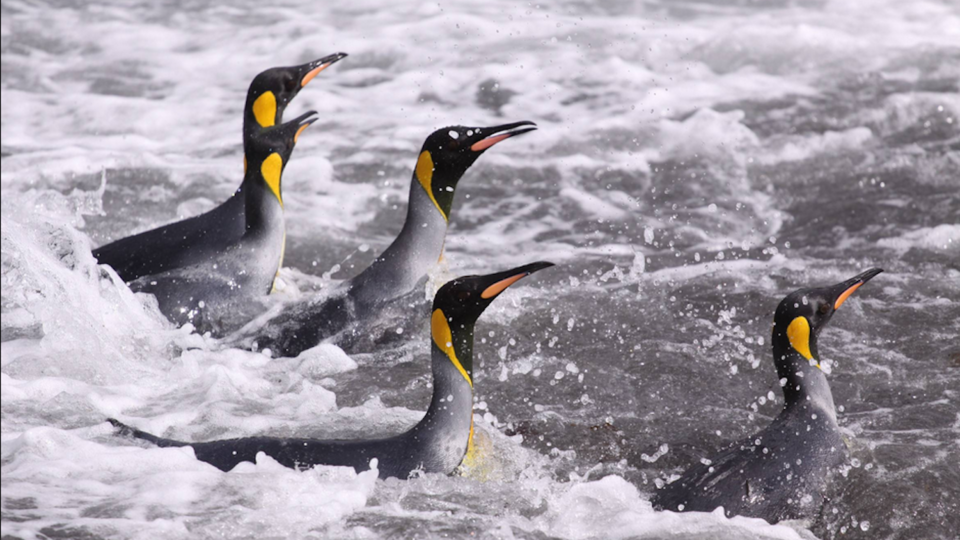Download our Pocket Penguins app for iPhone, Android, and AppleTV to stream the antics of our African penguin colony 24/7.


Who doesn’t love penguins? From Happy Feet to our own African penguin colony here at the Academy, we’ve long been charmed by the social antics of these unique cold-weather creatures. A new paper published today in Nature wraps up sixteen years of study on the feeding habits of the king penguin, with novel implications regarding climate, subantarctic food webs, and marine ecosystems of the southern hemisphere.
As a top predator of the Antarctic polar front, an important ecological boundary region, the king penguin is particularly well-suited for studying subantarctic species vulnerable to climate effects. Little has been documented about the direct correlation between climate patterns, food availability, and the robustness of these populations. The authors of this study, led by Charles A. Bost, set out to compare longer-term climate data with the foraging activity of a king penguin population located on the Crozet archipelago in the Southern Indian Ocean. Changes in ocean temperature directly affect food sources of the king penguin such as myctophid fish and phytoplankton. (And these temperature changes result from a variety of complex phenomena—mostly precipitated by subtropical dipole events, specifically the El Niño Southern Oscillation and Southern Annular Mode, in case you were curious.)
Using tracking devices, satellite imagery, and historical data, the researchers were able to document at-sea distribution and foraging activities of the king penguin population from 1992 to 2010 across a wide range of ocean temperatures. The study found that in seasons where warmer waters encroached on their habitat, the penguins had to forage much farther—and dive much deeper—to find suitable sources of food. Breeding and population robustness were ultimately affected by these resource challenges.
Given current climate projections involving a southern shift of warmer water temperatures, this causes concern for the future of the king penguin and its ability to thrive in a changing environment. This study is one of the first of its kind to link large-scale climate variability, foraging success, and ultimate population effect in a key top-predator species.
And who doesn’t love those top-predator penguins?
Image: T. Powolny
Download our Pocket Penguins app for iPhone, Android, and AppleTV to stream the antics of our African penguin colony 24/7.
